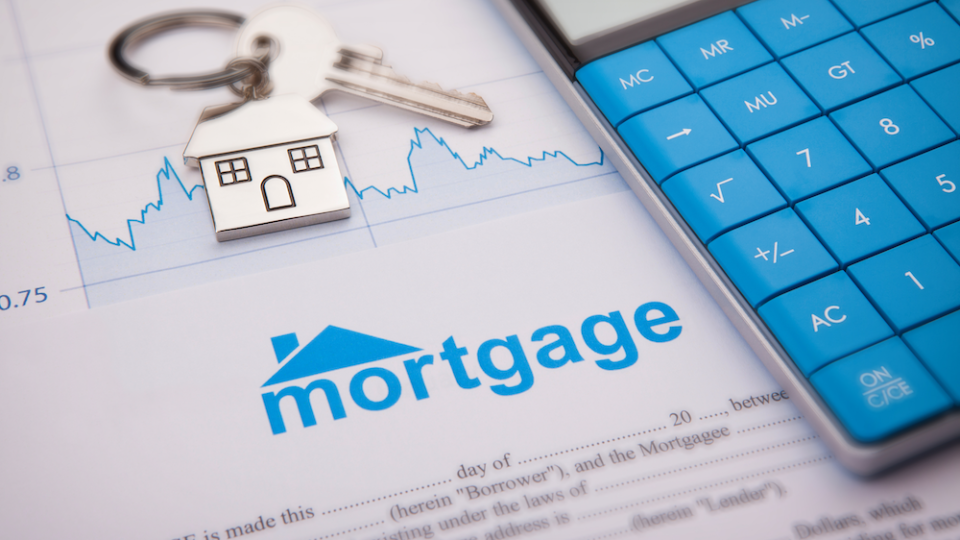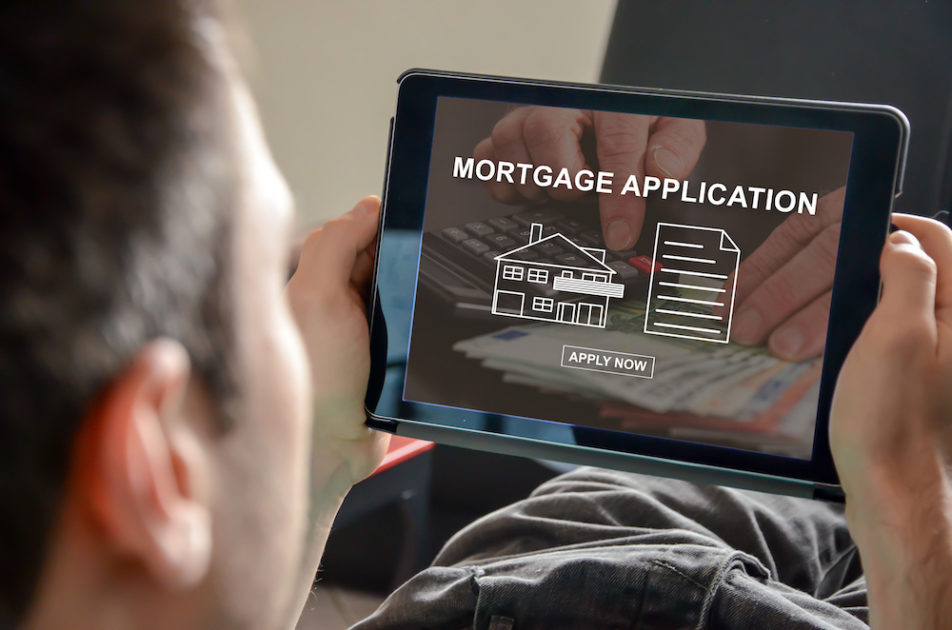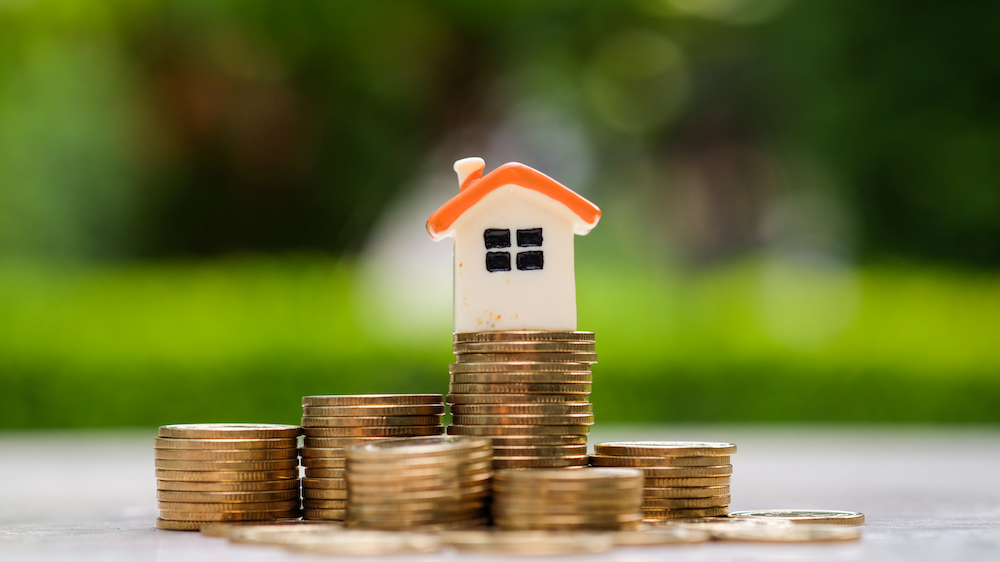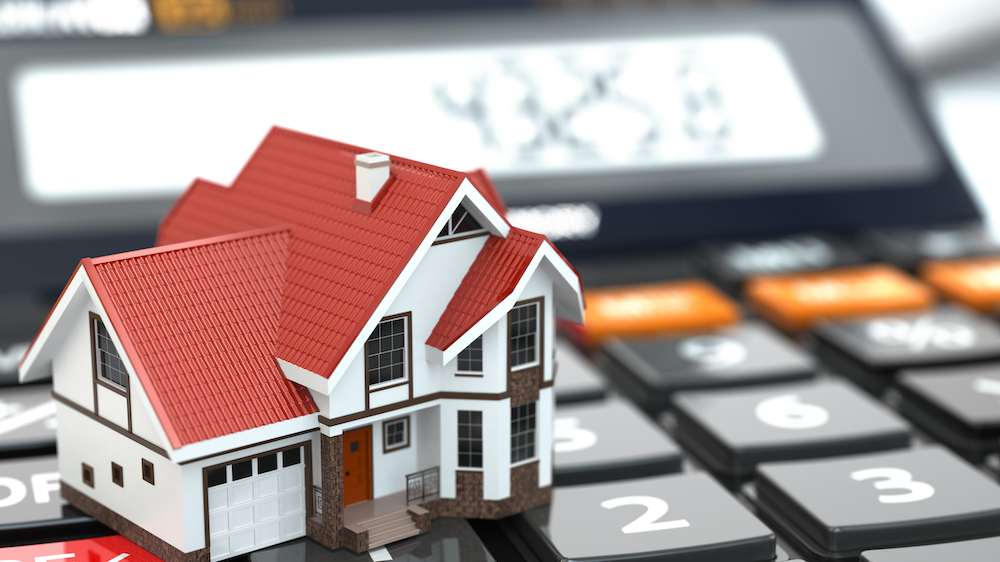
30-Year Fixed Mortgage Rates: Getting The Best Rates As A First-Time Home Buyer
(insert personalized rate tool here)
There are many home financing options available for first-time homebuyers – home loans or mortgages are one of the most popular methods. From the various types of loans offered in the primary mortgage market, most people choose a 30-year fixed mortgage due to its stability and predictability.
In this guide, we’ll discuss 30-year fixed mortgages in-depth. We’ll explain what they are and their strengths and weaknesses. We’ll also share tips on how to get the best 30-year mortgage rates and provide insight into what you need to prepare when applying for one! Keep reading for tools that can help you find the best 30-year fixed mortgage for your budget.

Understanding Fixed Mortgages
Fixed-rate mortgages are a loan type that feature a fixed interest rate and APR. Once you’ve qualified for the mortgage at a certain interest rate, it will be locked at that level until you’ve fully paid the loan off.
Due to its simplicity and wide range of term choices, fixed-rate loans are the most popular choice of loans for first-time homeowners. These loans are especially useful if you want to do long-term budgeting because the payment amount will stay constant throughout the life of the loan.
Generally, most of your early monthly payments go toward paying off the loan’s interest first, before it eventually switches. Once it does, the bulk of your payments are used to pay the loan principal.
In contrast to an adjustable-rate mortgage, fixed-rate mortgages are fully amortizing. This means that once the loan ends, you’ll have paid off all the principal and interest that you owe to the lender. Unlike an ARM, a 30-year fixed-rate mortgage won’t experience negative amortization where your interest outweighs your payment – causing your loan balance to increase.
Fixed mortgages are offered in varying lengths. While 15-year and 20-year loans are available, a 30-year term is most common. Because the 30-year fixed-rate mortgage offers the longest term, you’ll be able to spread out the payments and enjoy the lowest monthly installment amounts.
Strengths Of A 30-Year Fixed-Rate Mortgage
In this section, we’ll break down the top three reasons why a 30-year fixed loan is one of the most popular choices for American homebuyers.
Affordable Monthly Payments
The main benefit of fixed mortgages is that the payment amount stays the same until you pay the loan off entirely. By splitting your mortgage payments over 30 years, you’ll be charged a more affordable payment amount per month compared to shorter-term loans.
This is especially beneficial if you have a limited income because you can use the money you saved by taking out the long-term loan to pay for other living costs. These savings also allow you to have a safety net for emergency expenses and other unexpected costs.
Despite the lower monthly payments, you’re still allowed to pay more than the minimum required amount. If you pay more on your monthly installments, you’ll be able to pay off the mortgage sooner. You should keep in mind that this is completely optional, and you can always go back to paying the minimum amount per month.
Stable Mortgage Rate
The stability of 30-year fixed mortgage rates is one of its biggest appeals, especially if you need to map out your housing expenses in the long run. By paying the same amount each month, you’ll have an easier time estimating house-related expenses for the next 30 years.
Stable interest rates also mean that if you lock your 30-year loan in during a period of low mortgage rates – right now, for example, due to the coronavirus pandemic driving down mortgage rates – you’ll have that interest rate and APR for the life of the loan. By reducing your 30-year mortgage rates, you’ll be saving a large amount of money on interest payments.
Potential To Qualify For A Larger Loan Amount
Thanks to the lower monthly payments a long loan term provides you, you can buy properties with a higher purchase price. Even if you need a larger loan amount to buy a more expensive home, a 30-year mortgage may still grant you affordable monthly payments that you wouldn’t be able to pay if you chose a 15-year loan.
If you’re aiming to buy a house with an especially high purchase price, you can opt for jumbo loans that exceed limits set on conforming loans by guarantor companies Fannie Mae and Freddie Mac. However, these loans feature higher mortgage rates compared to conforming loans.

Weaknesses Of A 30-Year Fixed-Rate Mortgage
While a 30-year mortgage offers many benefits, there are also some caveats that you should keep in mind.
Lenders Charge Higher Rates
Mortgage lenders take a larger risk and tie up their money longer when you take out a 30-year loan. To balance out the risk they take, they’ll impose higher mortgage rates. As an illustration, you can expect to receive a 2.322% interest rate on a 15-year loan, while a similar 30-year mortgage will have a 2.852% interest rate.
Because 30-year mortgage rates are locked in for the entire life of the loan, you can’t get lower mortgage rates unless you refinance the loan.
Pay More Interest
Compared to a 15-year fixed loan, you will pay more than twice the amount of interest in a 30-year loan because you have twice the amount of principal and interest payments. While you may save money in the short-term, you’ll end up paying much more in the long run.
To illustrate, let’s assume that you take a $500,000 fixed mortgage with a $100,000 down payment. If you decide on a 15-year fixed mortgage with a 2.322% interest rate, you can expect to pay $74,079 in total interest. However, for a 30-year fixed mortgage of the same amount with a 2.852% interest rate, you’ll have to pay $195,676 in total interest.
Home Equity Builds Slower
As you make payments on your mortgage, you build equity on your home. This equity represents the part of your home that you truly own, free of debt.
Because payments made early on in fixed mortgages are mostly used to pay off your interest, your home equity will be much slower to build. However, you can counteract this by paying more than the minimum required amount on your monthly installments. While you may not have money to consistently do this every month, it will help build your equity faster compared to just paying the minimum amount.
Preparing Your Fixed-Rate Mortgage Application
30-year loans are riskier to lenders, and they will want you to prove that you won’t default on your loan. To help convince them that you aren’t a risky borrower, lenders will examine these four things.
Credit Score
One of the main determinants of a borrower’s risk is their credit score. This score ranges between 300 to 850 and represents your creditworthiness. A higher score will look better to potential lenders because it means that you have a strong repayment history.
Your credit score is directly related to the mortgage rate and annual percentage rate (APR) that you receive from lenders. A better score means that you have better rates.
For example, assume you’re taking a 30-year fixed loan worth $200,000. If you have a credit score of 620, you’ll be offered a 4.316% APR. If you work to improve your credit score to 700, you’ll qualify for the loan with a significantly lower 2.949% APR.
Debt-To-Income Ratio
A debt-to-income ratio (DTI) represents the amount of debt you have compared to your overall income. Lenders generally use this to gauge your ability to manage payments and repay debts.
Most lenders will want to see DTI no greater than 36%, which exhibits that you have a good ability to manage your debts. To improve this, you can reduce your recurring debt and increase your income.
Employment History
Another factor that may determine your loan eligibility is your employment history. Typically, lenders like to see you have a stable record of employment – being employed in the same job for longer periods sends a better message to them. To prove your employment history, you can provide your pay stubs.
Statement Of Monthly Income
Pay stubs from your work also satisfy another requirement from lenders – proof of monthly income. In addition to proving that the prospective borrower has a steady income, these statements also serve as proof that you have enough money to make monthly payments reliably.

Is A 30-Year Fixed-Rate Mortgage Right For You?
One of the greatest advantages of a 30-year fixed-rate loan is its stability. Because you’ll be paying a fixed amount every month, it’s much easier to budget in the long term. Generally, a 30-year fixed loan is best taken if you plan on staying in the same house for a long time and wish to pay lower monthly installments.
If you have an income that allows you to make higher monthly payment amounts, you may benefit by taking out a 15-year fixed-rate loan. You’ll receive the same benefit of a fixed monthly payment, but you’ll be able to pay off your loan balance faster.
However, fixed-rate mortgages aren’t recommended if you plan to live in your current home for a short period of time. If you plan to sell your house and buy another one within the next few years, you’ll potentially experience better savings with an adjustable-rate mortgage.
Calculating Your 30-Year Fixed Mortgage Rates
To help paint a better picture of the most current mortgage and refinance rates, you can consult the table below. This table is taken from a primary mortgage market survey of America’s major lenders and will be updated daily. Note that these rates are subject to change without prior notice.
(insert rate table here)
For a customized estimate of your 30-year fixed mortgage, you can use the mortgage rate tool we provided. With just a bit of information about your finances and zip code, we’ll provide a personalized mortgage rate estimate.
Once you have an idea of your home loan amount using the tools we’ve provided, you can use the mortgage calculator below to find out how much you have to pay in monthly installments.
(insert mortgage calculator here)
Why You Should Consider Refinancing
Because 30-year fixed mortgages have a static interest rate & APR, refinancing is one of the only things you can do to reduce your rates. A mortgage refinance entails taking out a new loan at a lower rate to pay off your current home loan. Like your initial mortgage, you’ll need to re-qualify for a refinance from mortgage lenders.
However, lower rates don’t always guarantee that your refinance will help you save. You should also pay attention to other costs associated with a refinance, such as closing costs and other fees. Most refinances also require a 0.5% fee that applies to all loans over $125,000.
If you refinance a 30-year fixed loan, we recommend you get a shorter loan to save on interest costs. However, you need to make sure that you don’t end up with prohibitively expensive monthly installments.

How To Find The Most Affordable 30-Year Fixed Mortgage Rate
A lower thirty-year fixed mortgage rate helps you save more on your loan. To help you find the best rates and best-valued mortgage, we share four tips that you can try.
Shop Around For Loan Offers
Like any product, lenders in the primary mortgage market compete for a borrower’s business by offering better rates than the competition. By searching around for loan offers, you may be able to find a lender that offers you a better rate compared to your current bank. Generally, lenders are required to provide standardized documents containing the interest rates and APR on their mortgage loan that you can use to compare offers.
Consider Other Mortgage Loan Options
While fixed mortgages are one of the most common loans used to buy a new home, they aren’t the only loan type offered on the primary mortgage market. You should review your financial situation and future plans to see whether fixed loans would be right for you.
In addition to conventional loans from mortgage lenders, you can consider government-backed programs like an FHA loan or a VA loan. These loans offer affordable alternatives for home buying, but they may have some caveats. For instance, an FHA loan requires you to take mortgage insurance, and VA loans require you to be a service member as well as pay a funding fee that replaces mortgage insurance.
Pay More Down Payment
Another method to lower the loan balance and save up on your future payments is to pay more than the minimum required down payment. By paying a larger down payment, you’ll have a lower loan-to-value ratio, allowing you to enjoy lower monthly installments over the life of your loan. Paying more down also helps you avoid extra costs associated with mortgage insurance.
Assume that you’re taking out a $200,000 thirty-year loan with 2.93% interest. If you pay the usual 20% down payment, you’ll pay $993 monthly. You can drive that monthly payment down to $951 if you pay a 25% down payment. This allows you to save $504 per year, which accumulates to $15,120 in savings by the end of your loan term.
An added benefit is that you can avoid getting jumbo loans by paying a larger down payment. By paying a larger amount of down payment, you can drive your loan amount down back to conforming loan limits set by Fannie Mae and Freddie Mac – avoiding the higher rates and costs associated with jumbo loans.
Work With Mortgage Brokers
By enlisting the help of a mortgage broker, you’ll be able to leverage their experience and connections to find better mortgage options. In addition to helping you find loans with a better mortgage rate, they may also help you reduce or even waive closing costs associated with your loan.

Closing Thoughts
Because of their stability and relatively low monthly installments, thirty-year fixed mortgages are popular with first-time home owners. Thanks to the long payment period, they also allow you to potentially qualify for a larger home that you wouldn’t be able to afford with shorter-term loans. However, these benefits are balanced out by the high interest payments and slower build of home equity.
If you’re a first-time homebuyer who wants to find the right home loan, Wesley LLC is here to help! Our team of financial professionals can advise you on how to find the best-valued 30-year fixed mortgage that fits your budget. Contact us today for more information!